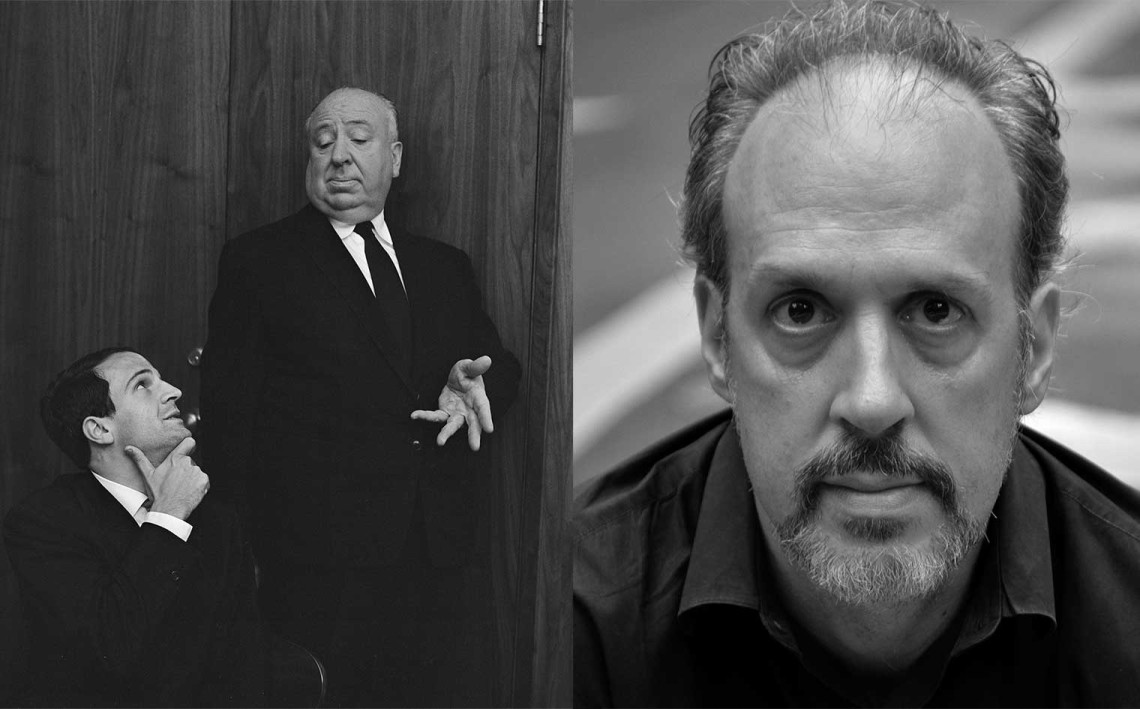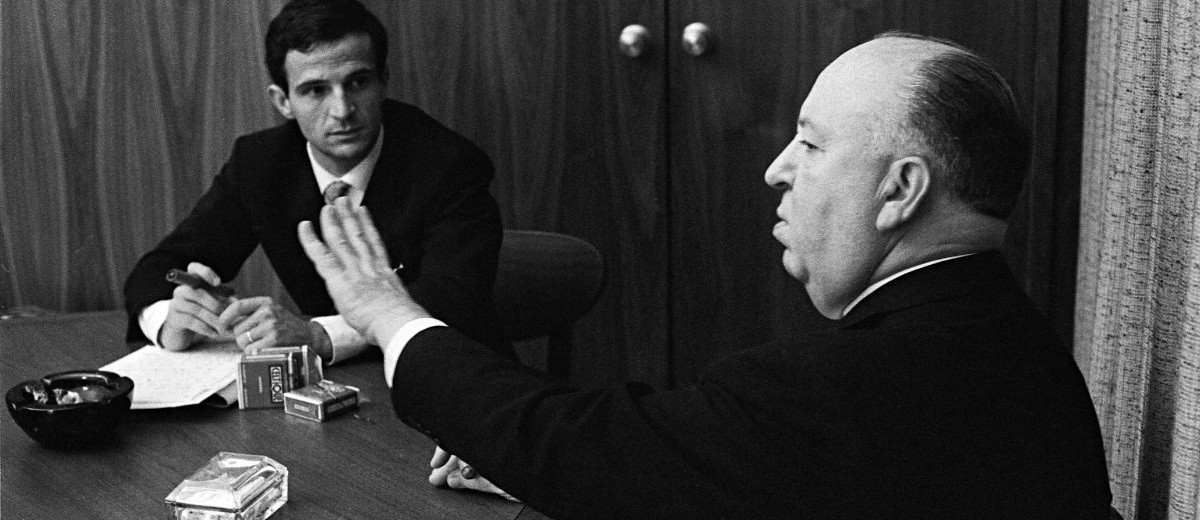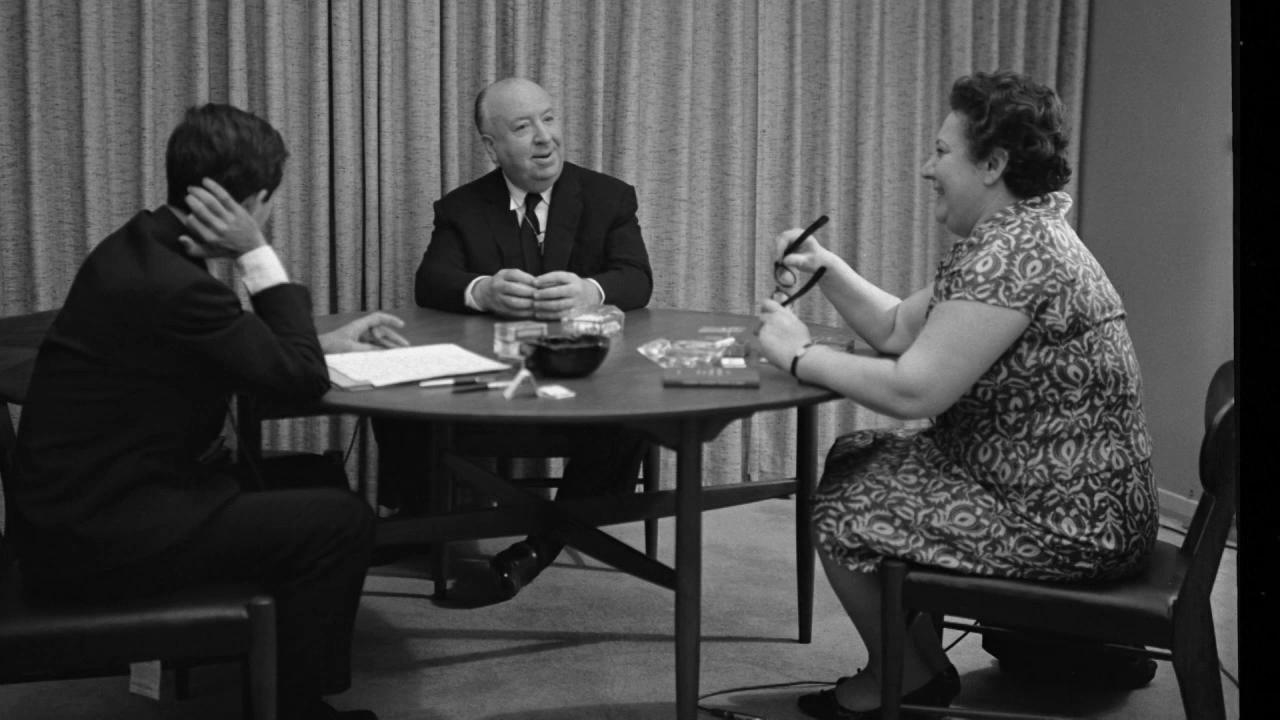Kent Jones may be best known as a New York-based film critic and programmer, serving as the editor-at-large of Film Comment for a decade before eventually becoming the director of programming for the New York Film Festival. But Jones’ love of cinema has manifested as much in documentaries as in critical analyses: he, along with beloved filmmaker Martin Scorsese, co-directed the 2010 documentary A Letter to Elia; with Scorsese, he also co-wrote the 2001 documentary My Voyage to Italy. Now, he’s on his own as the director of the new cinephilic documentary Hitchcock/Truffaut, which focuses on the legendary interview sessions between Alfred Hitchcock and critic/filmmaker François Truffaut in 1962 and Truffaut’s subsequent book.
On the eve of the release of Hitchcock/Truffaut, Jones sat down with Movie Mezzanine to discuss, among other subjects, his initial connection to Hitchcock, cinephiles, and “The Mike Douglas Show.”
MOVIE MEZZANINE
My introduction to Hitchcock was courtesy of the 100 million showings Channel 11 did of The Birds here in NYC.
KENT JONES
I remember those.
MOVIE MEZZANINE
But I did see one Hitchcock film in its original release—Family Plot. I was too young for Frenzy when it came out. Did you see any of Hitchcock’s films in general release?
KENT JONES
I saw Family Plot. I was too young for Frenzy too. My mother would never in a million years have let me see it. I also saw the 2-D version of Dial M For Murder on a 16MM print at my private school. Obviously, in 3-D it’s a different experience. But it was the Dick Schickel TV series, “The Men Who Made the Movies,” that really got me sparked about Hitchcock. That and the Hitchcock/Truffaut book.
MOVIE MEZZANINE
Speaking of TV series, Psycho was ruined for me, strangely enough, by a TV show Don Adams hosted called “Don Adams’ Screen Test.” It was where people re-enacted classic movie scenes. And the one I remember had a contestant re-enact Vera Miles’ discovery of Mrs. Bates. Also, before Psycho, I’d seen a William Castle movie called I Saw What You Did, which had a shower murder in it. So I wasn’t scared by Psycho at all.
KENT JONES
Did you ever see the “Mike Douglas Show” episode with Alfred Hitchcock and James Brown? It’s on YouTube.
MOVIE MEZZANINE
Uh, no! I’m gonna have to look that one up.
KENT JONES
James Brown gets Psycho mixed up with [William Castle’s] Homicidal. It’s very funny.
MOVIE MEZZANINE
OK, I need to see this. So, before the Hitchcock/Truffaut book, were there prior examples of a director talking about his work with another director?
KENT JONES
Not between directors. But like Paul Schrader said in the movie, there were conversations people were having in general. Peter Bogdanovich had already interviewed Hitchcock. People talked to [Howard] Hawks or [John] Ford to try to get them to say something.
MOVIE MEZZANINE
What about in one of those studio-produced shorts?
KENT JONES
Well, Godard interviewed Lang for French TV around the time of Contempt. And that’s a special circumstance because Fritz Lang is in Contempt, playing himself. So it’s a different enterprise between those directors. The fact that this book was done by a filmmaker was the difference at the time.
MOVIE MEZZANINE
Truffaut’s rationale for his book-long interview with Hitchcock was to show that American critics were underestimating the cinematic richness of Hitchcock’s work. These critics instead opted to classify it as mere entertainment. Was this due to Hitch’s success with audiences, or his foray into television? What was the problem critics had with him?
KENT JONES
In my movie, Marty Scorsese says “there was a bullying, as usual.” And the bullying takes different forms. Nowadays, that bullying is on behalf of unpretentiousness and the popular cinema. It’s “can’t we all just admit that all want to do is to go to the movies to have fun? Can’t we admit that car crashes are what we really want in our heart of hearts, and that we don’t have to deal with the pretensions of sitting through something that’s not fun?” Back in Hitchcock’s time, it was the reverse of this.
MOVIE MEZZANINE
Who would critics have considered as someone who represents true art back then?
KENT JONES
They’d say “well, cinema really isn’t an art form, but we can admit that Chaplin and Eisenstein and Ingmar Bergman were artists.”
MOVIE MEZZANINE
And Fritz Lang?
KENT JONES
No, absolutely not! Once a filmmaker came to this country to make movies, he was finished. And you had certain people hammering away at that point of view. So, that’s the context that Truffaut is responding to with Hitchcock. Truffaut was also combating the tendency toward abstraction in French criticism. Every discussion in the book is grounded in the circumstances in which Hitchcock made the film as opposed to removing those circumstances.
MOVIE MEZZANINE
How did you choose the interview subjects for your film? Some were obvious choices, but others were not. Was there a method to your madness?
KENT JONES
I wanted people who had a relation to the book, people who could speak and think in front of the camera. I didn’t want people who would just say—
MOVIE MEZZANINE
“This is the best book I ever read!”
KENT JONES
Yeah. I didn’t want that. There were other people I asked who either couldn’t do it or didn’t want to. Brian De Palma was saving his comments for the Noah Baumbach and Jake Paltrow movie.
MOVIE MEZZANINE
In describing your film, you said, “My intention is not to please cinephiles. I want the viewer to have the visceral revelation of what cinema is in all its most powerful beauty.” As a cinephile, I was quite satisfied with the film. Can you think of something you put in—or left out—where you thought “Yeah, cinephiles are gonna bitch about this!”
KENT JONES
I don’t think I did anything like that intentionally. And what I meant was “not just to please cinephiles.” But the world of film culture is kind of a closed world. There’s a lot of “well, we already know this.” If I’d made it with only cinephiles in mind—
MOVIE MEZZANINE
It would be a lot less cinematic, if I may say so. It’d be pretty dry.
KENT JONES
I made the movie I wanted, though at one point, I wanted to do it without narration. I realized we needed to orient the audience, so the narration is there, minimal as it is.
MOVIE MEZZANINE
Are the recordings of the Hitchcock/Truffaut interviews used in the film available for public consumption?
KENT JONES
11-1/2 hours [of the original 27] are available online for public consumption. You can Google “Hitchcock Truffaut tapes.”
MOVIE MEZZANINE
Did anything in your research lead you to change a prior opinion about a Hitchcock film or clear up a misconception you originally had about his work?
KENT JONES
Not strictly speaking. What it did was it clarified the book. The book is very edited and translated back from French, so you’re at a remove from Hitchcock in particular. He’s more spontaneous and funnier on the tapes. He’s also very reticent. Whenever Truffaut makes a point about a shortcoming, Hitchcock goes very quiet. Directors of his generation never got on the bandwagon with movies that failed; if it failed, that meant there was a problem. In Hitchcock’s opinion, that problem was with the actor. Vertigo failed because he wanted Vera Miles and she got pregnant. “Silly girl,” he said of her. I was also interested in Hitchcock not wanting to talk about other people’s films.
MOVIE MEZZANINE
Among other things, you are a film director, a film critic, and the director of the New York Film Festival. At this year’s NYFF, I saw De Palma, the Baumbach and Paltrow movie you mentioned earlier. It would serve as a great companion piece to your film.
KENT JONES
When I saw De Palma, I was enthralled.
MOVIE MEZZANINE
It’s a great movie.
KENT JONES
And Noah [Baumbach] and I traded films and we both thought our movies have a great relationship to one another.
MOVIE MEZZANINE
In his film, De Palma embraces his comparison to Hitchcock and says that he’s the last directors carrying on the old-school traditions Hitchcock employed. Do you agree?
KENT JONES
Yes and no. No, in the sense that Hitchcock is present in the work of a lot of people. He’s so big, that he’s absorbed into it.
MOVIE MEZZANINE
He’s in the air.
KENT JONES
That’s true of a lot of filmmakers. That’s how influence works. Brian did something different, though. In Brian’s case, he saw Hitchcock’s body of work as its own standalone universe, as its own separate entity, almost apart from the rest of cinema itself, with enough variety and richness and splendor and wonder and mystery that he could enter it. Now Brian’s different in that his relationships with actors were different than Hitchcock’s, because he started in theater. But he built from what he found in Hitchcock and created his own separate planet. It’s a complementary planet to Hitchcock, which is interesting.




















